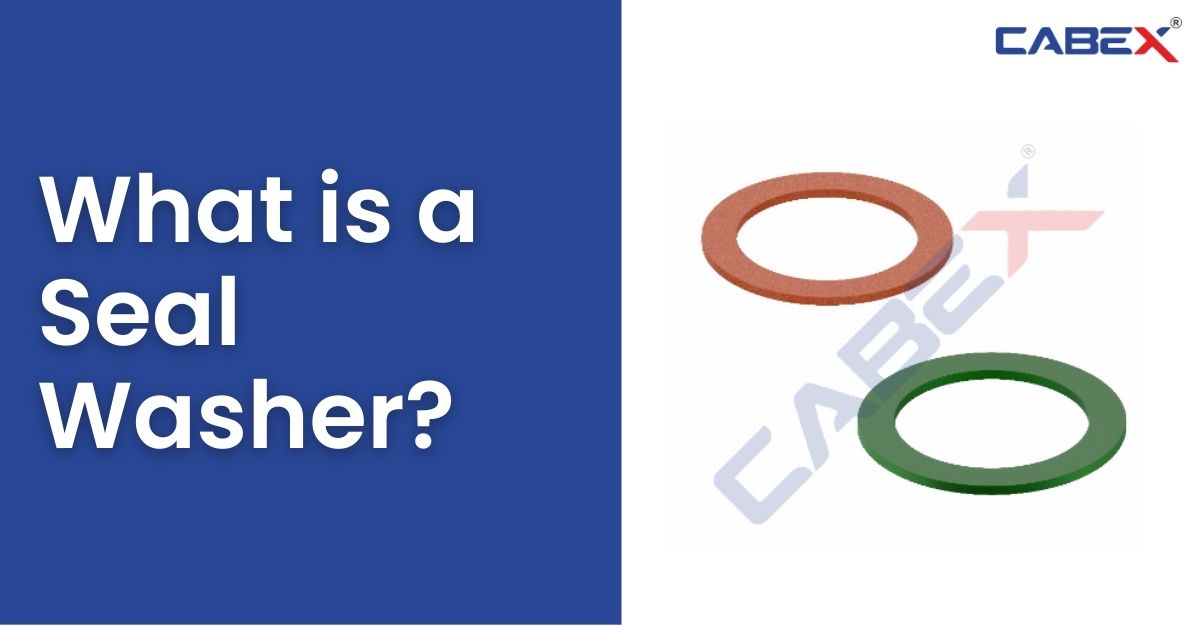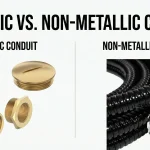Introduction
In the intricate world of mechanical engineering and industrial applications, seal washers play a vital, albeit often overlooked, role. These unassuming components are crucial for ensuring leak-proof connections and preventing the unwanted escape of liquids or gases. This comprehensive guide dives deep into the realm of seal washers, shedding light on their significance, types, materials, applications, and the factors to consider when choosing the right seal washer for specific purposes.
The Essence of a Seal Washer
At its core, a seal washer is a small, flat disk with a hole in the center, which is designed to create a secure seal when placed between two joined surfaces. The primary function of a seal washer is to distribute pressure evenly, thereby preventing leakage and providing stability to the connection. These seemingly simple components can be found in a wide array of industries, from automotive and aerospace to plumbing and manufacturing.
Types of Seal Washers
There are several types of seal washers, each tailored to suit specific applications and environments. Let’s explore some of the most common variants:
- Rubber Seal Washers: These washers, typically made from synthetic rubber compounds, offer excellent elasticity and resilience. They are well-suited for applications requiring resistance to moisture, chemicals, and temperature fluctuations.
- Metallic Seal Washers: Composed of various metals like copper, aluminum, or stainless steel, these washers are prized for their durability and robustness. They are often used in high-pressure and high-temperature applications.
- Nylon Seal Washers: Nylon washers are known for their exceptional insulating properties and resistance to corrosion. They find application in electrical and electronic systems.
- Fiber Seal Washers: Made from compressed fiber materials, these washers are commonly utilized in low-pressure applications, providing a reliable seal against gases and liquids.
- Bonded Seal Washers: These innovative washers incorporate a rubber seal bonded to a metal ring, combining the best features of both materials for enhanced performance.
- O-Rings: Although technically not washers, O-rings deserve mention due to their sealing capabilities. They are circular in shape, often made of rubber, and are installed in grooves to create effective seals in dynamic applications.
Understanding Seal Washer Materials
The choice of material for a seal washer is of paramount importance, as it directly influences the washer’s effectiveness in specific conditions. Let’s delve into the characteristics of various seal washer materials:
- Buna-N (Nitrile): Exhibiting excellent oil resistance and flexibility, Buna-N seal washers are ideal for applications involving petroleum-based fluids.
- Viton (FKM): Famed for its outstanding resistance to extreme temperatures and chemicals, Viton seal washers are favored in aerospace, automotive, and industrial sectors.
- Silicone: Seal washers made from silicone offer superb heat resistance and are widely used in food and medical industries, thanks to their non-toxic properties.
- Neoprene: Neoprene seal washers are valued for their resistance to weathering, aging, and abrasion, making them suitable for outdoor applications.
- Copper: Copper seal washers are known for their electrical conductivity and corrosion resistance, often employed in plumbing and electrical systems.
- Aluminum: Lightweight and corrosion-resistant, aluminum seal washers find application in automotive and aerospace industries.
Applications of Seal Washers
Seal washers find their way into an impressive array of applications, ensuring safety, reliability, and efficiency. Here are some key domains where these unassuming components make a significant impact:
- Automotive Industry: Seal washers are widely utilized in engines, transmissions, brakes, and fuel systems, contributing to the smooth functioning and longevity of vehicles.
- Plumbing and Pipe Fittings: These washers play a vital role in creating leak-proof seals in plumbing connections, preventing water wastage and damage to structures.
- Aerospace Engineering: In the demanding aerospace sector, seal washers are employed in critical systems like hydraulic systems, fuel lines, and pneumatic connections.
- Manufacturing Machinery: Seal washers ensure leak-free joints in various manufacturing equipment, increasing productivity and reducing downtime.
- Electrical and Electronics: They are used in electrical connectors, transformers, and switches, guaranteeing optimal electrical performance.
- Medical Devices: Seal washers find application in medical instruments and devices, ensuring sterility and preventing fluid leakage.
Selecting the Right Seal Washer
When choosing a seal washer for a specific application, several factors need consideration:
- Operating Environment: Assess the temperature, pressure, and chemical exposure the washer will endure.
- Material Compatibility: Ensure the chosen washer material is compatible with the substances it will come into contact with.
- Size and Dimensions: Select the appropriate size and thickness of the washer to suit the joint and prevent over-compression or insufficient sealing.
- Type of Seal Washer: Consider the specific type of seal washer that best suits the application’s requirements.
- Regulatory Standards: For certain industries, compliance with regulatory standards is essential, so check for relevant certifications.
Conclusion
In conclusion, seal washers may be small in size, but they wield immense importance in ensuring leak-free, secure connections in a vast range of industries. Their role in preventing wastage, enhancing safety, and improving overall efficiency cannot be overstated. By understanding the different types of seal washers, their materials, and applications, as well as considering the necessary factors while selecting them, engineers and professionals can make informed decisions and optimize the performance of their systems. So, the next time you encounter a leak-free connection, spare a thought for the unsung hero – the seal washer.
FAQ:
The main types of seal washers include rubber, metallic, nylon, fiber, bonded, and O-rings. Each type is tailored for specific applications and offers distinct sealing properties.
Seal washers are made from various materials, including Buna-N (Nitrile) for oil resistance, Viton (FKM) for extreme temperatures and chemicals, Silicone for heat resistance, Neoprene for weathering, Copper for conductivity, and Aluminum for lightweight and corrosion resistance.
To choose the right seal washer, consider the operating environment, material compatibility, size, type, and regulatory standards of your application. These factors ensure an optimal fit for effective sealing.
- Top Mistakes When Installing Cable Glands | Cabex India
- Causes of Cable Gland Failures & Prevention Guide | Cabex India
- Waterproof Cable Gland vs Explosion Proof Difference: A Practical Industrial Guide
- Are Cable Glands Waterproof? A Practical, Engineering-Level Guide to Selection and Installation
- Metallic vs. Non-Metallic Conduit: The Definitive 2026 Guide for Smarter Electrical Systems








